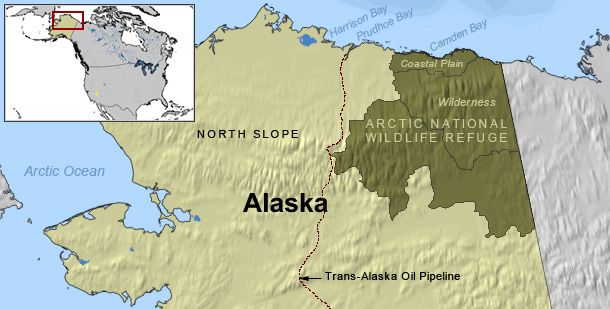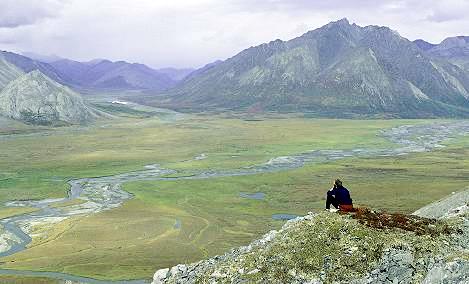The Arctic National Wildlife Refuge is being readied by the Trump administration and oil and gas corporations to be explored for energy deposits. ANWR lost its protection in the same Republican Tax Bill that further enriched American oligarchs and corporations.
 ANWR is roughly the size of South Carolina. There are no roads. Only a handful of people, grandfathered in by the original preservation Bill, continue to live there.
ANWR is roughly the size of South Carolina. There are no roads. Only a handful of people, grandfathered in by the original preservation Bill, continue to live there.
I will never travel there, nor will most others who love wilderness, and that was always acceptable. You knew it existed, that in a brief moment of wisdom we had collectively decided to mark this place as off limits to our greed — this place for animals and plants, for biodiversity, for visits but not invasion, this landscape for dreaming and optimism for those of us who have never been. For 58 years, since it was established in 1960, good people — lawyers and activists and ordinary people and legislators fought off attempts to change its designation. Now it faces an existential threat.
My love of wilderness is not theoretical. I learned that love as a young man over the course of six summers, 1976 to 1981, when I hiked over wild places in Wales, Ireland, Scotland, Montana, Wyoming, Colorado and the northern tier of Pennsylvania. I fell in love with space and quiet, with animals, with light in every hue, with the vastness above timberline. I learned by walking hundreds of miles, the rhythm of my body freeing my mind to take in rather than analyze, to soak up all that emptiness. I saw fields of stars so deep and expansive that even now I can bring back the pleasure of awe.
 Wilderness changed my life, and its existence continues to do so even if I have never visited the specific place nor ever will see it. Its promise is there inside me, and the faith that others after me will have the experience of such beauty. Wilderness made me quieter and more observant, it gave me a reverence for solitude, it cut out great swatches of foolish pride, it stoked my capacity for wonder, it gave me an appreciation for valuing the days, for not looking ahead. It opened me to glimpses of the essential mystery of animals and birds. It taught me more about the idea and feeling of the sacramental than any church. It gave me the unearned gift of absolute silence.
Wilderness changed my life, and its existence continues to do so even if I have never visited the specific place nor ever will see it. Its promise is there inside me, and the faith that others after me will have the experience of such beauty. Wilderness made me quieter and more observant, it gave me a reverence for solitude, it cut out great swatches of foolish pride, it stoked my capacity for wonder, it gave me an appreciation for valuing the days, for not looking ahead. It opened me to glimpses of the essential mystery of animals and birds. It taught me more about the idea and feeling of the sacramental than any church. It gave me the unearned gift of absolute silence.
Unless the courts stop them, corporate roads will be forced in to ANWR, seismic charges set off, helicopters will tear apart the air, pads will be set, drilling will commence, streams and rivers will be corrupted, wildlife patterns displaced, great and terrible noise will become a persistent reminder that man and his machines have come. One more place will be mapped for the money that can be made. When it is stripped of its resources, it will be abandoned, but the damage will be irreversible.
In Desert Solitaire, Edward Abbey spoke of “wilderness not [as] luxury but [as] a necessity of the human spirit, and as vital to our lives as water and good bread. A civilization which destroys what little remains of the wild, the spare, the original, is cutting itself off from its origins and betraying the principle of civilization.”